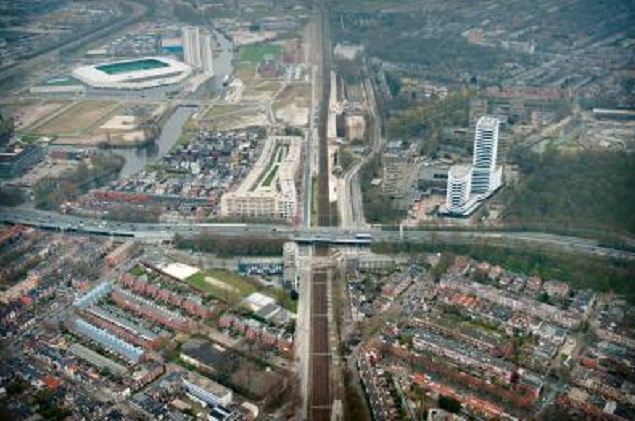
A Dutch court is set to hear arguments that production from Europe’s largest natural gas field should be suspended because earthquakes linked to extraction threaten safety.
The Netherlands has progressively cut the amount of gas won from the Groningen field in the north amid protests over the tremors, with the Economy Ministry in June slashing this year’s output cap by 29 percent. The Administrative Jurisdiction Division of the Council of State will hear 41 appeals from local political parties, environmental organizations and individuals against an earlier production decision on Thursday, and possibly Friday, before making a final ruling in October or November.
Further cuts in output from Groningen would limit options for gas buyers in the Netherlands, Germany, Belgium and France, which built their networks to use the low-calorific fuel the field produces and don’t yet have the capacity to convert enough richer gas from nations including Russia. It would also be a blow to the Netherlands, which expects gas sales of 9.1 billion euros ($10 billion) this year, more than 60 percent of which comes from Groningen.
“The main impact is not likely to be immediate — although there may be some winter repercussions, especially if it’s cold — but longer term, especially post-2020,” Jonathan Stern, chairman of the Oxford Institute for Energy Studies, said by e- mail Wednesday. “It’s probably not as crucial as we thought unless the outcome is to radically reduce production.”
The court in April suspended production from one cluster of the field in an accelerated motion on the case, after which Economy Minister Henk Kamp in June lowered the 2015 cap by 29 percent to 30 billion cubic meters (1 trillion cubic feet).
Groningen generated about 10.7 billion euros in revenue last year. The field, operated by a Royal Dutch Shell Plc-Exxon Mobil Corp. joint venture that owns 60 percent of it, accounted for 61 percent of Dutch production in the first half of 2015, down from 66 percent a year earlier. Every cut of 1 billion cubic meters lowers the state’s proceeds by about 200 million euros, Dutch central planning agency CPB said in June.
Production from the deposit fell 25 percent from a year earlier to 20.5 billion cubic meters in the year to August. With at least 33 billion cubic meters of low-calorific gas needed to ensure consumers have enough supply to heat their homes and cook, according to the State Supervision of Mines, the Economy Ministry plans to make up lost production by pulling gas out of storage.
Recommended for you
